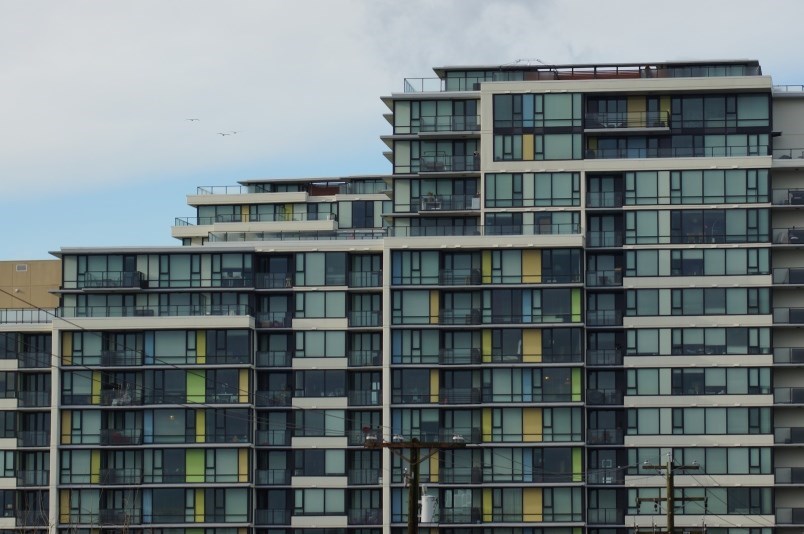A Union of BC Municipalities (UBCM) report claims housing supply in the province is actually keeping up with population growth – but one city councillor said this report doesn't reflect decades of slow housing growth.
Canada – including B.C. and Richmond – is far behind on building housing, but this problem goes back decades when the federal and provincial governments significantly slowed down construction of rental and affordable housing, said Richmond city Coun. Andy Hobbs.
The short window that UBCM used in its study doesn’t address the fact housing hasn’t kept up with population growth for decades, he added.
The report noted housing supply, "as best can be determined based on the data available, has kept pace with population growth in British Columbia over the past five years" and that more housing has been built in B.C. in the past three years "than in any three years in the past 20 years."
Richmond Mayor Malcolm Brodie recently told the Richmond News that, while Richmond’s population grew by 5.9 per cent between 2016 and 2020, there was a 9.8 per cent increase in dwellings - 7,557 new homes - completed over those four years.
Statistics compiled in the UBCM report mirror housing supply in Richmond, for example, homes in Squamish grew by 30.3 per cent while the population increased by just 21.8 per cent from 2016 to 2021.
“Given that local governments have also approved record amounts of new homes over the past several years, it is evident that the data does not support a mandate for wholesale change to the development approval process, but instead continued streamlining,” noted the UBCM report, which was based on research by Andy Yan, director of SFU’s City Program.
However, some Richmond council members, including Hobbs, have been advocating for more supply and not delaying development applications, saying this is what the minister responsible for housing, David Eby, is also pushing for.
While there are pieces of the UBCM report Hobbs said he agrees with, he said the timeframe the report looked at was too short, calling the report “simplistic.”
Statistics from the Canada Mortgage and Housing Corporation (CMHC) show that, from 1960 to 1979, there were about 110,000 privately built, purpose-built rentals constructed in B.C., but in 2000-2020, that number was about 34,000, less than a third.
About 52,000 affordable housing units were built between 1970 and 1989, whereas in the next two decades this dropped to about 32,000.
“Those are just straight numbers, adjusting them for population would make them worse,” Hobbs said, adding that “we are playing catch-up.”
Furthermore, a report by a joint provincial-federal panel chaired by Joy MacPhail titled “Opening doors: unlocking housing supply for affordability,” pointed out Canada has the lowest number of homes per 1,000 residents of all G7 countries and would have to build 1.8 million to catch up. (This was based on a study by Scotiabank.)
But Hobbs said he doesn’t believe there’s any magic bullet to solving the housing crisis, rather there has to be a “continuum” of housing that needs to be built – market housing, rentals, affordable rentals and housing for the homeless and this needs to be denser housing than in the past.
“We’re not building sprawling three- or four-bedroom bungalows on half an acre or an acre any more like you did in the 50s and 60s,” Hobbs said.
While the city has policies to mitigate the housing crisis, like not allowing age limits or rental restrictions in new developments, Hobbs acknowledges prices for homes are disconnected from incomes in Richmond.
“That angst is real but I think it’s a mistake to say there’s an instant fix,” he said.
In fact, a recent housing report compiled by the City of Richmond stated that 95 per cent of Richmond residents couldn’t afford to buy a house in the city today if they didn’t already own one, 90 per cent couldn’t afford a townhouse in Richmond, and 80 per cent couldn’t afford a condo.
While the minister responsible for housing recently said there might be legislation coming to address how municipalities get new developments approved, Hobbs said this is something he would strongly oppose, saying local councils know their communities best.
“I completely disagree with the province taking over greater control over housing and decisions made at the local level,” he said. “Richmond does not need that – we don’t need the province taking over and that’s something I would fight very strongly as to maintain municipal and local control over those decisions.”



